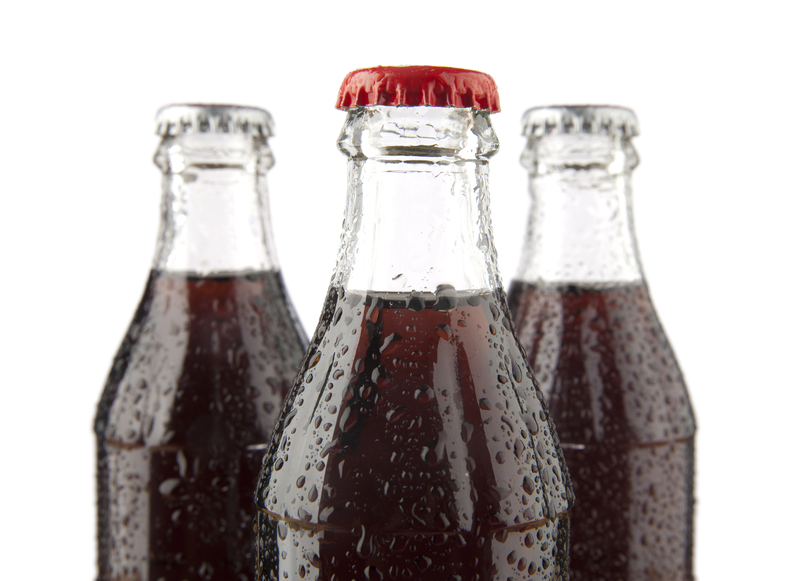Brilliance Boost: Jewellery Cleaning Tips and Tricks
Posted on 13/08/2025
Brilliance Boost: Jewellery Cleaning Tips and Tricks
Whether you want your diamond ring to dazzle or wish to restore the glow of your favourite gold necklace, maintaining clean jewellery is essential. Over time, our most cherished pieces can lose their lustre due to exposure to oils, lotions, dirt, and everyday elements. With the right cleaning techniques, you can ensure your treasures remain as brilliant as the day you first wore them.

Why Does Jewellery Lose Its Shine?
- Daily exposure: Contact with skin oils, sweat, cosmetics, and perfumes can cause residue build-up.
- Environmental factors: Chlorine, saltwater, and pollution can tarnish metals and dull gemstones.
- Storage issues: Storing jewellery in humid or dusty areas can accelerate tarnishing and oxidation.
To boost jewellery brilliance, establishing a routine cleaning and care regimen is paramount. Proper jewel maintenance protects both the beauty and longevity of your cherished pieces.
Jewellery Cleaning Basics: What You Need to Know
Cleaning jewellery at home doesn't require expensive equipment. However, understanding the nature of the materials and the right cleaning solutions is crucial. Below you'll find key steps and tips to keep all types of ornaments shining.
Essential Cleaning Supplies:
- Soft-bristled toothbrush or jewellery brush
- Mild dish soap (non-abrasive)
- Microfiber or lint-free cloth
- Bowl of warm water
- Ammonia-free cleaning solution (for diamonds and hard gems)
- Baking soda and white vinegar (for stubborn tarnish on silver pieces)
How to Clean Different Types of Jewellery
Diamond Jewellery
- Soak the piece in warm water mixed with a few drops of mild dish soap for 20-30 minutes.
- Use a soft-bristled brush to gently scrub around the stone and crevices.
- Rinse under warm running water and pat dry with a clean, soft cloth.
_Tip: For extra sparkle, use a drop of ammonia solution (maximum once a week) but avoid excessive or harsh use.
Gold Jewellery
- Mix a few drops of non-abrasive dish soap with warm water.
- Let the gold chain or ring soak for 15 minutes.
- Brush gently with a soft toothbrush.
- Rinse and dry with a soft, lint-free cloth.
*Avoid using harsh chemicals as they can affect the gold's natural sheen and finish.
Silver Jewellery
- Create a paste with baking soda and water.
- Gently rub the paste onto the tarnished areas using a soft cloth.
- Rinse thoroughly and buff dry with a clean, soft cloth.
Pro Tip: For persistent tarnish, soak silver items in a solution of white vinegar and baking soda for 2-3 hours, then rinse and dry.
Pearls and Delicate Gemstones
- Never soak pearls or soft gemstones (like opal, turquoise, or emeralds) in water or cleaning solutions.
- Instead, wipe them with a slightly dampened cloth.
- If necessary, use a mixture of water and mild soap to moisten the cloth, then gently wipe each bead or stone.
- Lay flat to dry to avoid the string stretching on pearl necklaces.
Platinum and White Gold Jewellery
- Similar to gold jewellery, use a mild soap and water mix.
- Scrub with a soft brush and rinse thoroughly.
- Buff to a high shine with a clean, microfiber cloth.
Tip: Consider professional polishing periodically for restoration of high-gloss finish.
Top Jewellery Cleaning Tips and Tricks
1. Regular Dusting Goes a Long Way
- Wipe down your jewellery with a lint-free cloth or soft chamois after every wear.
- This removes fingerprint oils and staves off the build-up that dulls brilliance.
2. Safe Soaking for Sturdiness
- Hard gemstones and metals can be soaked, but never submerge glued settings or porous stones.
- Always check for loose stones before and after cleaning.
3. Use Toothpicks and Cotton Swabs
- Toothpicks remove grime from small crevices.
- Cotton swabs dab away dirt from under settings and prongs.
4. Try an Ultrasonic Jewellery Cleaner Carefully
- Effective for diamond and gold pieces, but avoid for pearls, opals, or vintage jewellery.
- Follow manufacturer instructions and never mix different metals or stones in the cleaner.
5. DIY Jewellery Cleaner Recipe
- Mix 1 cup warm water with 2 drops mild dish soap and a splash of club soda.
- Soak sturdy jewellery for up to 20 minutes before brushing and rinsing.
- For an alternative, combine 1 part ammonia with 6 parts water for diamond brilliance (only once per month).
How to Prevent Jewellery from Tarnishing
Prevention is often easier than restoration. Here are some simple strategies to help maintain your jewellery's shine:
- Store each piece separately to prevent scratching and tangling. Use lined jewellery boxes or soft pouches.
- Keep jewellery away from direct sunlight and humid environments to prevent metal oxidation.
- Avoid exposure to chemicals in pools, household cleaners, and even lotions or perfumes.
- Remove rings and bracelets before engaging in manual chores, cleaning, or gym activities.
- For silver, consider anti-tarnish strips or silica gel packs in storage containers to absorb excess moisture.
Storing Clean Jewellery for Long-Lasting Shine
- Always dry jewellery thoroughly before storing to prevent moisture-related tarnishing.
- Store in velvet-lined boxes or wrap pieces in soft cloth to limit air exposure.
- For chains, hang them or fasten clasps to avoid knots and kinks, preserving both appearance and function.
When to Seek Professional Jewellery Cleaning
- Complex heirloom or vintage items should only be cleaned by professional jewellers.
- For loose stones or damaged settings, never attempt at-home cleans as you may further harm your jewellery.
- Pieces with intricate detailing or mixed materials can benefit from ultrasonic or steam cleaning under expert supervision.
Annual professional cleaning is recommended for both maintenance and early detection of any wear or damage.

FAQs: Boosting Your Jewellery's Brilliance
Can I use toothpaste to clean jewellery?
No. Toothpaste is abrasive and can scratch precious metals and stones. Always use mild, non-abrasive cleaners for a safe jewellery shine boost.
How often should I clean my jewellery?
Weekly cleaning is ideal for frequently worn pieces, while special occasion jewels can be cleaned monthly or after each use.
Is commercial jewellery cleaner safe?
Many are safe for hard gemstones and gold, but read all labels carefully. Some may harm pearls, opals, or silver. Always test on a small, inconspicuous area.
What's the safest way to clean antique jewellery?
For valuable antiques, consult a professional jeweller. Never soak antique pieces, as older adhesives and fragile stones may be damaged.
Conclusion: Let Your Jewellery Shine Brighter, Longer
Nothing compares to the confidence of wearing sparkling, freshly-cleaned jewellery. By following these jewellery cleaning tips and tricks, you can ensure your favourite items always look their best, whether they're simple silver studs or ornate family heirlooms. Remember, gentle care and regular attention are the keys to long-lasting brilliance.
For ongoing care, keep a cleaning schedule and store each piece properly. When cared for with attention and love, your glittering treasures can be enjoyed and admired for generations. Let every sparkle tell your story - starting with a brilliance boost today!




